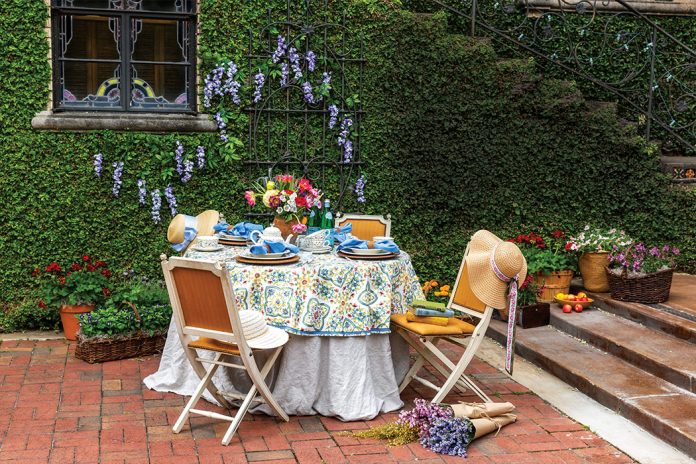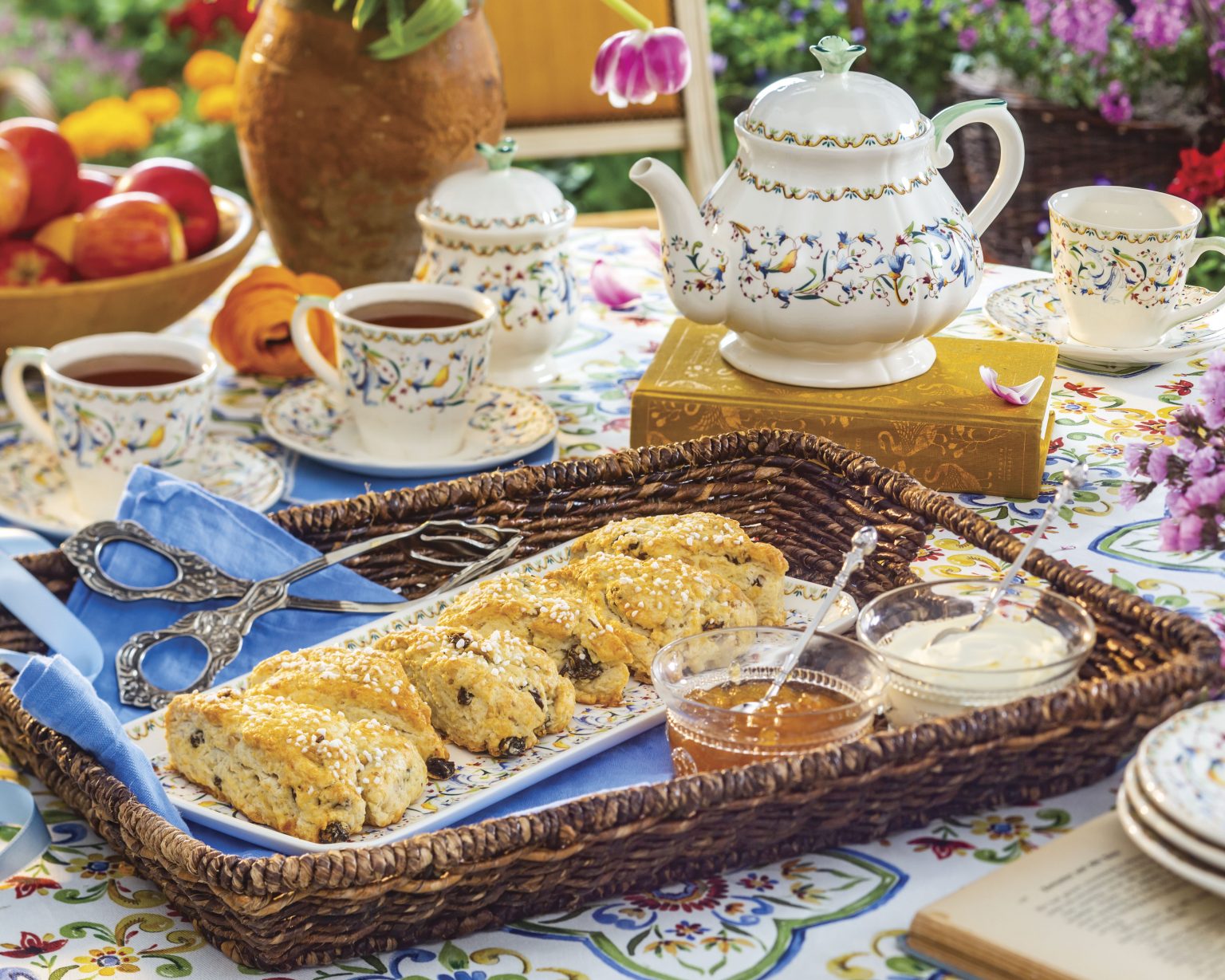From Victoria Magazine:
Celebrating its centennial of publication, this charming tale by Elizabeth von Arnim follows four female characters—strangers drawn by an ad bidding “those who appreciate wisteria and sunshine” to retreat to a castle on the shores of the Mediterranean. Escaping London for a joint holiday in Italy, the women develop new friendships that are remembered here with afternoon tea.
In The Enchanted April, when Mrs. Wilkins, Mrs. Arbuthnot, Mrs. Fisher, and Lady Caroline venture to ancient villa San Salvatore, the four often come together at teatime. Where the author leaves specifics of fare served to the imagination, chefs in our test kitchens enrich the story with a vibrant menu that infuses the beloved English ritual with robust Italian flavors. A fitting introduction, Panettone Scones present fruit-studded cake that originated in Milan in the form of quintessential tea bread, offered with mascarpone and preserves. (Read more.)
Here is a review of the film Enchanted April:
ShareThere are times when winter seems endless, not only winter the season, but winter the state of mind, the "winter of my discontent," as Shakespeare put it. Enchanted April is about four women who feel trapped by the various winters of life: Lottie and Rose by their futile and unhappy marriages, Mrs. Fisher by old age, and Lady Caroline by boredom and dissipation. They decide to rent a castle in Italy for the month of April to escape their troubles. The castle has a sun-bathed garden full of wisteria; in the gallery is an ancient but serene portrait of the Virgin, whose blessing seems to emanate upon the company. The women are rejuvenated and begin to experience hope.
The film is based upon a novel by Elizabeth von Arnim. According to Turner Classic Movies:An Australian born British novelist, von Arnim was as flamboyant as the heroines of her romantic yet psychologically probing novels. Her first husband was a Prussian count, and she lived a life of privilege, writing about it in her autobiographical first novel, Elizabeth and her German Garden (1898). Left penniless by her husband's death in 1910, she turned to writing full time. After an affair with novelist H.G. Wells ended in 1916, she impulsively remarried. That marriage was a disaster, and in 1919 she fled to Portofino, Italy, where she stayed in a castle that inspired her to write the novel about the power of beauty to soothe and transform troubled souls.Just as there are seasons of coldness and death, there are seasons of life and regeneration. There are times of retreat and spiritual renewal, which can occur in a place of exterior beauty, or in the interior castle of the soul. To me, Enchanted April celebrates that certain season of grace which comes to those who sincerely seek it, especially those who are ready to be healed.



















No comments:
Post a Comment